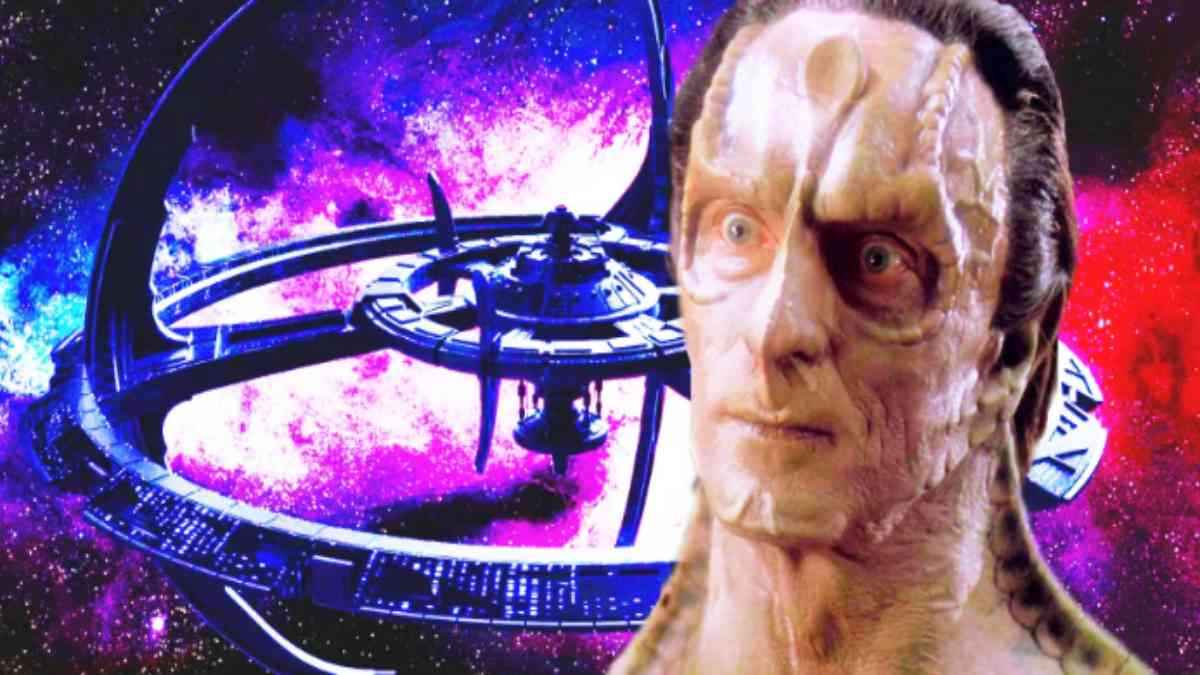Anti-Founder Plague DS9 The bioweapon that changed the Dominion War
When fans discuss the most morally complex storylines in Star Trek: Deep Space Nine, the Anti-Founder Plague DS9 arc stands out. This plotline did more than move the narrative forward — it challenged the very ideals that Starfleet claimed to uphold. The Anti-Founder Plague was not just a fictional bioweapon, it was a narrative pivot that forced viewers to confront questions about ethics, warfare, and survival.
In this article, we will dive into the origins of the plague, its role in the Dominion War, the behind-the-scenes creative decisions, and the lasting impact on DS9 lore.
What is the Anti-Founder Plague in DS9
In DS9, the Anti-Founder Plague was a genetically engineered virus designed to target the Founders, the shapeshifting leaders of the Dominion. It was a slow-acting, terminal illness that caused the Founders’ liquid forms to destabilize and break down. In-universe, it was secretly developed by Section 31, Starfleet’s covert intelligence arm.
This plotline added a layer of espionage, biological warfare, and moral ambiguity to the final seasons of the show, making it one of the most discussed arcs among fans.
How the Anti-Founder Plague was introduced
The Anti-Founder Plague DS9 storyline emerged gradually. It began as whispers about the Founders falling ill, hinted through subtle character interactions. Later, it was revealed that Odo, one of the show’s central characters, was an unwitting carrier of the virus, infected years earlier by Section 31.
This slow-burn reveal kept audiences guessing and deepened the emotional stakes — especially once the truth came to light.
Section 31 and the moral dilemma
The decision to unleash the Anti-Founder Plague DS9 was not a tactical choice made in open battle but a calculated covert operation by Section 31. Unlike the Klingons or Cardassians, who fought openly, Section 31 embodied the philosophy that the ends justify the means.
For many fans, this raised ethical questions:
-
Is it acceptable to commit genocide to end a war
-
Can a Federation that claims moral superiority justify using bioweapons
-
Where is the line between self-defense and preemptive annihilation
These debates mirrored real-world concerns about biological warfare and intelligence agencies operating outside public oversight.
Odo’s role as a carrier
One of the most heartbreaking twists was that Odo unknowingly spread the Anti-Founder Plague to his own people. Infected during his return to the Alpha Quadrant, he interacted with other Founders, passing the virus without realizing it.
This revelation placed Odo in an agonizing position — he had to grapple with guilt, responsibility, and the potential extinction of his species. It also gave the storyline an intensely personal dimension.
The cure and the cost
The resolution of the Anti-Founder Plague DS9 plotline came when Dr. Bashir discovered a way to cure the virus. However, the cure became a bargaining chip in the Dominion War’s endgame. Odo ultimately agreed to return to the Great Link and share the cure with the Founders, ending both the plague and hostilities.
This conclusion was bittersweet. The cure saved the Founders, but the Federation’s hands remained morally stained by Section 31’s actions.
Behind-the-scenes origins of the plot
Writers for DS9 have acknowledged that the Anti-Founder Plague was designed to add tension and moral ambiguity to the war arc. It served as a way to challenge Starfleet’s utopian image by introducing an internal faction willing to cross ethical boundaries.
In interviews, showrunners have compared Section 31’s tactics to Cold War-era covert operations. This grounded the storyline in a reality that fans could recognize, despite the sci-fi setting.
Impact on DS9’s narrative tone
Before the plague storyline, DS9 was already known for its darker, serialized storytelling. However, the Anti-Founder Plague pushed the tone further into morally gray territory. It forced main characters — and the audience — to question what survival truly costs.
This arc also showcased DS9’s strength in balancing large-scale political intrigue with deeply personal character drama.
Fan reactions and legacy
The Anti-Founder Plague DS9 arc remains divisive. Some fans praise it for its complexity and willingness to address difficult moral questions. Others feel it tainted the Federation’s image beyond repair.
Regardless of opinion, its legacy is secure. The storyline influenced later Star Trek works, inspiring discussions about ethics in warfare, covert operations, and the cost of victory.
The plague as a metaphor
Many fans and critics see the Anti-Founder Plague as a metaphor for preemptive strikes, government overreach, and the ethical perils of scientific advancement in warfare. In this way, it reflects real-world debates about security versus morality.
By embedding these themes in a science fiction setting, DS9 invited viewers to think critically without the conversation becoming purely political.
Conclusion
The Anti-Founder Plague DS9 storyline remains one of Deep Space Nine’s most compelling arcs. It combined espionage, science fiction, and moral philosophy into a narrative that challenged both characters and viewers. Whether you see it as a necessary evil or an unforgivable act, its role in shaping the Dominion War and redefining Star Trek’s moral boundaries is undeniable.
FAQs about Anti-Founder Plague DS9
What is the Anti-Founder Plague in DS9
It is a genetically engineered virus created by Section 31 to target the Founders.
Who created the Anti-Founder Plague
Section 31, Starfleet’s covert intelligence organization.
Was Odo responsible for spreading the plague
Yes, unknowingly. He was infected by Section 31 and passed it to other Founders.
How was the Anti-Founder Plague cured
Dr. Bashir developed a cure, which Odo delivered to the Founders.
Did the Federation approve the plague
Officially, no. Section 31 operated without public or Starfleet approval.
Why is the plague storyline controversial
It raises questions about morality, genocide, and covert warfare.
Does the plague appear in other Star Trek series
It is specific to DS9, but its themes influence later Star Trek works.
Is the Anti-Founder Plague based on real events
While fictional, it parallels real-world issues of bioweapons and intelligence overreach.
